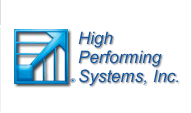Debra Cannarella
VP of Operations, High Performing Systems, Inc.
If you want to be a higher performer or improve professional or personal relationships, it all starts with knowing yourself. If you don’t recognize your own unique talents and emotions or understand how they impact you, then it will be difficult to make positive changes. Implementing strategies to improve your emotional self-awareness will enhance your professional (and personal) success - regardless of your operational level, industry or circumstance. Engaging a professional coach or another similar professional can help facilitate this process.
If you ever get caught by surprise from your own behaviors or reactions (you may have asked yourself at some point, “where did that response come from?!?”), it’s possible that you could use some help with becoming more self-aware. Following are a few simple coaching suggestions to consider.
Journaling. Try keeping a journal for a few weeks to record your emotions and what’s happening. Look for patterns. If you feel happy and excited about a new project at work, how do your teammates respond to your new ideas and suggestions? If you are frustrated because you’ve hit a major delay on a key deadline, how does your attitude impact your willingness to set a new schedule and move forward? As you track your feelings and their effects across time, you’ll begin to understand your emotions better.
Use Tools to Help. Sometimes, self-awareness isn’t a person’s go-to response. You may just need a gentle nudge to remind you to pause and reflect. Something as simple as an alarm on your cell phone each day can help you step back from the hectic pace of your workday and make you think about your current mood and what’s influencing it. Being intentional about self-reflection is a good start to help make it become more natural.
Get Feedback. Ask a trusted friend or colleague to give you honest feedback on their perception of your self-awareness. Do they ever notice that your words don’t quite align with your facial expression or body language? Do you say that you’re on board with a plan when other people don’t think you really are? Ask your friend to challenge you, nicely, to verbalize your emotions and feelings so that you can begin learning how to use emotional language to describe what you’re experiencing.
Take an Assessment. A reliable assessment tool can help you understand your skills and competencies better. Receiving feedback on the results from a certified coach or trainer will help you learn more about your unique skills and emotions and how to use them more effectively. It will also reveal areas that may be potential challenges for you, and you’ll get suggestions on what to do about them.
With intentional effort and practice, you can become more aware of your own emotions and their impacts on your behavior and interpersonal interactions. Improving self-awareness is the first step to improving your overall professional and personal success.
For a printable PDF of this article, click here.
_____________________________________
Debra Cannarella is the VP of Operations at High Performing Systems, Inc. (HPS), a consulting company that provides assessments, consulting and training solutions to help organizations excel. HPS conducts certification training on the EQ-i 2.0 assessment and provides individual, leader and executive coaching to clients. Contact Debra by email at debra@hpsys.com.
High Performing Systems is an award-winning world leader in EQ-i 2.0® certification (since 2005), EI training and implementation, leader coaching and success profiles. Call 706-769-5836 to talk with an experienced EI practitioner about your organization's specific needs. |
